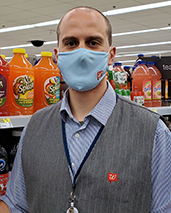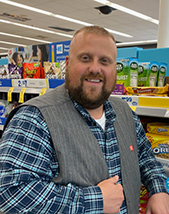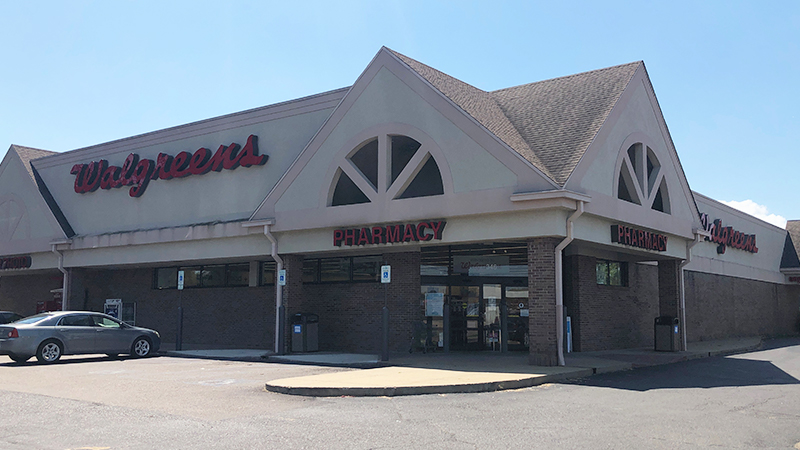Walgreens store manager Todd Braswell is a man who cares, deeply.
He cares about his store, he cares about his team members, he cares about his community – and he also cares about protecting his store from theft.
“I always looked at it as someone is stealing my stuff and I need to get it back,” Braswell explains about his past approach to dealing with shoplifters. “It didn’t really matter to me who they were.”
But as Braswell and many store managers across the country are learning, who people are matters much more than what they’re doing in a single moment.
Walgreens is helping them to address unconscious bias through a training program that uses empathy and compassion to deal with all scenarios in their stores, making sure the great care they show is apparent in all aspects of their work as well as their interactions with customers.
Being conscious about bias
Walgreens had established policies and training on preventing harassment and discrimination and deployed enhanced training to store managers and field team members across the country after an incident involving alleged racial profiling occurred in a store in South Florida in June 2018.
“Our first reaction to the incident was very much shock and surprise,” says Kristen Vargas, now vice president, retail operations for Walgreens, who oversaw the South Florida region in 2018. “But also disappointment, because no matter what, we want all customers to feel welcome and comfortable in our stores. We needed to start challenging ourselves to be as thoughtful about possible about customer interactions.”
Under the guidance of Carlos Cubia, Global Chief Diversity Officer; Vargas got straight to work, connecting with Gina Stuart of the Diversity and Inclusion team and members of the Walgreens Human Resources team. The training focused on learning how to identify, acknowledge and work to address unconscious bias.
An eye-opening experience
Greg Gandolfo, store manager in Lodi, New Jersey, completed the training last summer.

“They gave us four or five different scenarios, had us put ourselves in a different person’s shoes for each one and asked what we thought it would be like to be someone else,” says Gandolfo. “I’m not a member of any minority group no matter how you measure it, so seeing the things that others might experience, mostly because of factors outside their control, really was eye-opening.”
Gandolfo says the experience helped him reflect on moments in the past and to see those instances through a new lens. During the training session at his location, Gandolfo shared some of these specific instances, which included interactions with customers.
He recognized and acknowledged his bias, and says that through the training, he has gained tools and insights that will help him in future situations.
Changing perception
It’s just over nine hours by car – three by plane – from Gandolfo’s New Jersey store to the small town of Kingsport, Tenn., where store manager Stephen Cavin finds himself in the same boat as Gandolfo after going through the training himself.

Cavin explains that his store, a 24-hour location in a busy part of town, routinely saw a lot of foot traffic and had a number of homeless people sheltering in and around the location. The location also happened to experience their fair share of shoplifting incidents.
“It created a little bit of a difficult environment for everyone,” Cavin explains. “Everybody was constantly on edge, thinking we were going to get stolen from at any moment.”
But when unconscious bias training came to his location, Cavin was heartened to see an incredible amount of enthusiasm and buy-in among his team. He even recalls an overnight shift lead coming directly from his shift to attend the training because it mattered that much to him.
“I said I’d have to buy him an extra-large Mountain Dew to keep his eyes open,” Cavin remembers. “But he was so glad he came.”
After completing the training, Cavin reports that the culture in his store has greatly improved. Team members are recognizing instances when they’re making assumptions, and are now making an effort to assume positive intent and empathize with anyone who comes into their store. Additionally, his store is experiencing an upward financial trend, already up 42 percent over last year in terms of sales.
“The training came at the perfect time for us,” says Cavin. “It’s been good for business, and it’s been good for everybody.”
Taking time to understand

Todd Braswell was also among the group of store managers to participate in unconscious bias training when it came to his location in West Memphis, Ark.
“I can tell you, honestly, the first session was something I’ll never forget,” Braswell remembers. “What it really helped me with was learning to put myself in the other person’s shoes in any and every situation.”
One of those situations came just a few weeks after the training, when he saw a homeless man he frequently recalled shoplifting from his store walk in.
“This time, I struck up a conversation with him,” Braswell remembers.
Braswell learned that the man, who lived in another city, found himself stuck in Memphis due to a number of unfortunate circumstances. The man told him that he was desperate.
“I said to him, ‘If I buy you a bus ticket, would you be able to get on that bus and go home?’ He told me yes.”
So Braswell told him to be at the bus station by 9 the next morning and he would make sure he got him a ticket. The man showed up, and true to his word, Braswell made sure the man got home.
“Talking to him made me realize there was a good reason why he was here,” Braswell says. “It wasn’t just that he’s stealing from me and deserves to be looked down on. He had something going on in his life that he needed my help with. The training made me realize that.”
Now, Braswell keeps a pack of vouchers with him that entitle the holder to a shower, meal and warm bed at a local shelter. When he sees homeless persons enter his store now, instead of giving them the third degree, he gives them a voucher.
It was always clear that managers like Braswell, Cavin and Gandolfo cared about their stores, their teams and their communities – and through enhanced unconscious bias training, their empathy and compassion are on full display each time a customer walks through their doors.
Because of its success in the field, Walgreens Boots Alliance has since expanded unconscious bias training to include team members throughout the United States and in some areas worldwide.

